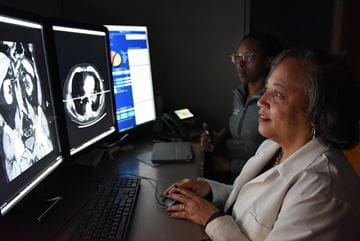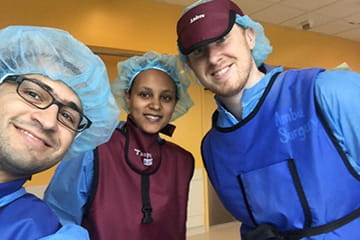This one-year, non-ACGME-accredited Body Magnetic Resonance Imaging (MRI) Fellowship focuses on abdominal and pelvic MRI and includes up to two months of electives in neuroradiology, musculoskeletal radiology or cardiovascular radiology. This fellowship, approved by the IU School of Medicine Office of Graduate Medical Education, is designed for physicians who are familiar with the technical and clinical aspects of body MRI and who intend to practice advanced Body MRI in their career.
Note: For the 2027-2028 academic year, the Body MRI Fellowship is filling internally and will not be accepting external applications.


